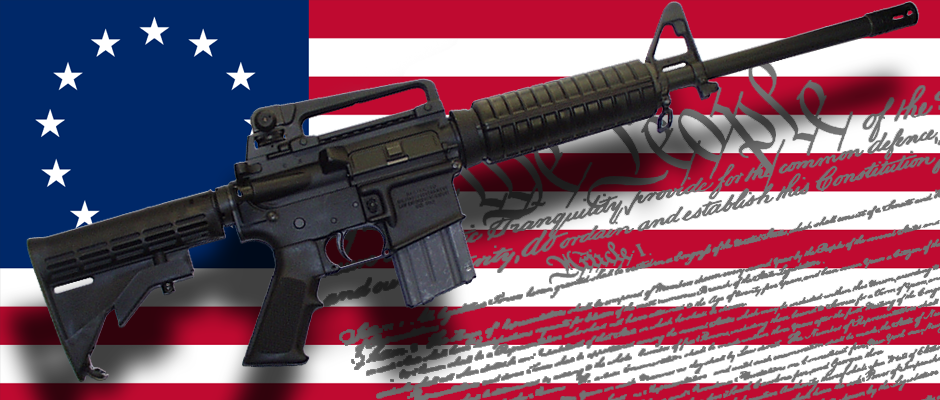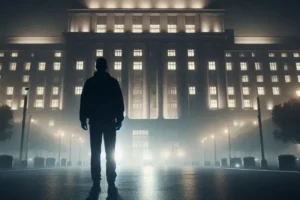The Power to Protect – OURSELVES
One right sticks out more than most when considering an Amendment’s possible controversy. This, of course, is Amendment II, the right to protect ourselves. There seems to be some confusion about the limits of this amendment and perhaps how it applies. This article should help alleviate any such controversy and explain what should be the end of the debate as a whole. This article will also clear up some of the stigmas attached to the controversy and demonstrate the ignorance of so many.
The amendment states clearly that a well-regulated Militia, being necessary to the security of a Free State, the right of the people to keep and bear Arms, shall not be infringed. (U.S. Const.—Amend II)
To address this correctly, we must establish a common understanding of the words used. It seems only responsible to use definitions regarding this amendment since so many seem confused about its purpose, restrictions, and scope.
To begin with, we must look at the words “bear” and “infringed.” “Bear” is not meant to represent mammals of the family Ursidae. Instead, it means “(of a person) carry” (Bear, n.d.). “Infringed,” by definition, means “violated.” (Infringed, n.d.). So for those seeking restrictions in the 2nd amendment, the restriction was already written in as arms that someone can carry on their person, which shall not be violated.
We also need to pay particular attention to the phrase “well-regulated.” In today’s terms, regulated means to control or direct according to rule. However, this is not what this meant in the 1700s. Instead, “well-regulated” refers to the property of something being in proper working order. Something that was well-regulated was calibrated correctly and functioning as expected.
By definition, a militia is a citizen army; a military organization formed by local citizens to serve in times of emergencies (militia, n.d.) who are not a part of any regular armed forces, including the Army, the Air force, the Marines, the Navy, the Coast Guard or National Guard (Beard, 1909).
Additionally, and again by definition, a militia is not government-sponsored. This means that arms, uniforms, training, equipment, etc., are not provided by either the state or the federal government. Instead, they are provided solely by the citizen seeking participation in the militia.
You must have citizens to have a militia. Citizens must have arms, equipment, etc., to participate in the militia since the state or the federal government does not provide them. If governments do not provide such arms and equipment, then who might provide these? Beginning to see the point?
The “militia” was not given the right to bear arms. Instead, it is “the right of the people to keep and carry arms,” as clearly stated in the amendment.
The Second Amendment is not entirely about firearms, though. This is the part that most people get confused about. The Second Amendment enumerates the right of the people to form a citizen army to protect the Free State.
It was enumerated this way because the British did not allow the colonists the right to self-protection and raised their tyrannical armies against the colonists. As mentioned earlier, as you read through the Declaration of Independence, one can clearly see the several times the founders addressed military forces set against the colonist by their King. Oddly enough, our government today highly frowns upon the practice of citizen armies or carrying weapons and appears to be placing military forces against the people.
The amendment does not say a single thing about the caliber of people that can form such citizen armies or for what reasons. Instead, it states clearly that the citizen army is necessary for the security of a free state and reiterates the idea that the right of the people to keep and carry arms shall not be violated because the citizenry cannot form a citizen army without such arms.
To simplify, and keeping in mind that militia members are expected to bring their own arms, it is easy to see that if the state or the federal government supplied the citizen army, then they would (by definition) not be a citizen army at all. Instead, they would be a local state-sponsored military force such as the National Guard. Just to keep the debate honest, the National Guard falls under the Department of Defense.
The reiteration of this point is extremely necessary to understand the following point. Any army needs access to weapons of war to be even remotely effective. Therefore, to have a properly functioning or well-practiced militia, citizens would not only have to have the right to keep and carry arms, but they would also need the ability to acquire military-grade weapons capable of being carried on their person that was effective at accomplishing their mission of securing a free state against all enemies, both foreign and domestic.
It would be pointless to form a citizen army if the people could not arm themselves as members of a legitimate citizen army. This is basic logic, and it is amazing that people can interpret this in any other way than what has been demonstrated here. Simply stated, any attempt to take away, limit, or otherwise impede one’s right to keep and carry arms is in direct contradiction and violation of the 2nd amendment and several other provisions of the Constitution.
The Constitution does not state that certain people were prohibited from keeping or carrying arms. In fact, it states quite the opposite. It says that the right to keep and carry arms shall not be violated. It does not talk about the firearm’s style, size, amount, or capability; it says what the person can carry. It does not discuss age, criminal history, or reasons for owning; it says your right will not be violated.
Our Founding Fathers wanted this and said it was vital to the survival of freedoms and the security of our states. Only an idiot lacking both a vocabulary and a dictionary can debate this to the contrary. Granted, some pull at strings of the heart stating that certain criminals should not be able to own or carry firearms, but even this retort is simple: did they not have criminals during the time of the writing of the Constitution? Do you think the founders somehow forgot to mention their intentions on the Second while addressing criminals in other areas of the Constitution? Furthermore, if the people we release from incarceration are so dangerous, then instead of stripping them of Creator-given Rights, perhaps releasing them in the first place might be revisited, considering there has never been a full-proof law.
Please, understand this last point. It is THIS amendment that solidifies your power within the Republic. To remain free, you must be able to counter oppressive forces, be they domestic or foreign. So let me offer you a modern translation of the Second Amendment.
Because a practiced citizen army is necessary to the security of your Republic, your right to keep and carry firearms shall not be violated.
I could inundate you with well over a hundred quotes and case precedents about the legitimacy of the points presented in this article. It is, however, entirely unnecessary. Our founders were brilliant men. Most of them were much more educated than the average citizen today. They did not make mistakes in their verbiage. They scrutinized and thought hard about what they were doing. Their phrasing was double-checked and pondered by everyone involved. Several of the people who reviewed these documents were lawyers.
It says what it says, and it means what it means because our founders wanted it to be that way. To insinuate anything else is not only asinine but also a great insult. The recurrent theme throughout the documents is a great distrust of the authority which oppresses. Is it odd now that when that distrust comes up again, it is somehow a bad thing rather than heroic or patriotic? Should this not be a warning sign or red flag for the rest of us?
Some (usually lawyers) try to contort the meaning of the Second Amendment. President Jackson’s declarations during the Nullification Crisis are the strongest debate against what I have laid out for you here. The second is Lincoln’s warning to the South in 1861. However, these are probably invalid for several reasons. To begin with, just because a President says something does not mean it is the reality. (Please Note Obama’s Promises on ACA) Second, these statements were made LONG after the Constitution was already in place and agreed upon. Third, both of the Presidents listed are guilty of Unconstitutional acts and attempting to justify doing so for the sake of bigger government. This is an excellent segue into my final point.
The Second Amendment was not a mistake. It is an integral part of our Bill of Rights, and we must reflect upon the idea “that a bill of rights is what the people are entitled to against every government on earth, general or particular, and what no just government should refuse, or rest on inference” (Jefferson, 1787).
Understanding the validity of that statement, can anyone explain how the right meant to restrict government; (a right that cannot be licensed, altered, adjusted, or taken away) is being licensed, altered, adjusted, and taken away by the very government it was meant to restrict and protect us from? The answer is simple: we have permitted them via our inaction or ignorance.
This may be the most significant warning you receive in your entire life. I suggest you read this article at least one more time for clarity. Then, read it once more.
Let me end this article with an interesting parallel you should probably be aware of. Texas A&M University Law Professor Mary Margaret Penrose recently called for repealing and replacing the Second Amendment during a symposium on constitutional gun rights at the University of Connecticut’s School of Law.
As Hugh McQuaid reported on CTNewsJunkie, Penrose asked the audience—a room packed full of lawyers and law school students—how many of them felt the legislative and judicial responses to gun violence have been effective. Not a single hand went up.
“I think I’m in agreement with you and, unfortunately, drastic times require drastic measures,” Penrose said. “. . . . I think the Second Amendment is misunderstood and I think it’s time today, in our drastic measures, to repeal and replace that Second Amendment.”
Rather than applying the amendment to all states, Penrose recommended striking the provision to enable individual states greater discretion in determining their own gun policies.
Penrose said she advocates redrafting the entire U.S. Constitution when she teaches constitutional law courses. She said American life has changed drastically since the 18th Century when the Constitution was adopted.
“Why do we keep such an allegiance to a constitution that was driven by 18th Century concerns? How many of you recognize that the main concern of the 18th Century was a standing army? That’s what motivated the Second Amendment: fear of a standing army,” she said (McQuaid, 2013).
My retort is simple and can be summed up in two words—no and wrong. In future articles, you will see that we face the same concerns today as our Founders in the 18th Century. If you have read much of my work already, you may already know that history repeats itself and that this repetition may be largely due to the fact that most people forget and let their guard down.
I probably don’t need to tell you about the crazy world we live in these days. If we have ever needed personal or national protections, that time is probably now. Professor Penrose must have a contorted view of reality, or perhaps she is entirely too sheltered. Regardless, in the coming months and years, you will see how her ideas and words are beyond dangerous. This is especially true when we contrast the truth to the comments that lawyers like Penrose often make. The scary part is that people like Penrose make, interpret, and judge the laws that people like you and I must live by. This puts your liberties in a dangerous position. Frankly, I do not believe that any perception of security is worth the sacrifice of liberty.
I would like to close with a simple statement. This struggle is not new, and neither are the words of Penrose. In the spirit of the historical record, let us look to the words of Androcles (son of Theodorus) when it comes to such tyranny. “Many of you might claim that desperate times call for desperate measures, and indeed you are right. I beg you, however, not to fall for the strange charm that this despotic rule may have. We are indeed in desperate times, times in which our city is weaker in both body and spirit than it has ever been. And it is for this reason that we must not allow tyranny to irreparably corrupt our core beliefs” (Androcles, 400+B.C.).
I could not agree more.




